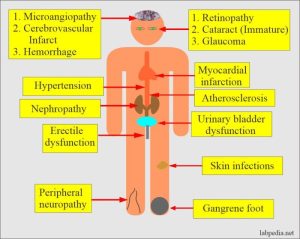
Step into the world of Tummy Tuck Recovery, where we unravel the secrets to a smooth healing journey post-surgery with expert tips and a clear timeline. Get ready for an engaging exploration!
Let’s dive deeper into the nuances of what to expect during the recovery phase after a tummy tuck surgery and how to make the process as seamless as possible.
Tummy Tuck Recovery
After undergoing a tummy tuck surgery, the recovery process is crucial for optimal healing and results. The typical recovery timeline can vary from person to person, but generally, here is what you can expect:
Recovery Timeline
- First few days: You will experience swelling, bruising, and discomfort. It’s important to rest and follow your surgeon’s instructions for pain management.
- First week: You may need to wear a compression garment to reduce swelling and support the healing tissues. Avoid strenuous activities during this time.
- 2-4 weeks: Most patients can return to work and light activities, but strenuous exercise should still be avoided. Follow-up appointments with your surgeon are essential for monitoring your progress.
- 6-8 weeks: By this time, you should start feeling more like yourself and be able to resume normal activities. However, full recovery can take several months.
Post-operative Care
- Follow your surgeon’s post-operative instructions diligently, including wound care, medication schedules, and activity restrictions.
- Eat a healthy diet rich in nutrients to support healing and reduce the risk of complications.
- Avoid smoking and alcohol, as they can impair the healing process.
- Stay hydrated and get plenty of rest to aid in recovery.
Potential Complications
- Common complications may include infection, blood clots, and delayed healing. Contact your surgeon immediately if you experience severe pain, excessive swelling, or unusual symptoms.
- Serious complications such as hematoma or seroma may require additional medical intervention.
- Follow-up appointments are essential to monitor your progress and address any concerns promptly.
Pain Management Tips
- Take pain medication as prescribed by your surgeon to manage discomfort.
- Use ice packs or cold compresses to reduce swelling and numb the area.
- Engage in light walking to improve circulation and reduce stiffness, but avoid strenuous activities.
- Practice deep breathing exercises to promote relaxation and reduce stress during the recovery phase.
Cosmetic Surgery
Cosmetic surgery is a branch of plastic surgery that focuses on enhancing a person’s appearance through surgical procedures. It can involve various types of surgeries aimed at improving different areas of the body, not just the abdomen like in a tummy tuck.
Types of Cosmetic Surgeries
- Rhinoplasty: Also known as a nose job, this surgery aims to reshape the nose for aesthetic purposes or to improve breathing.
- Breast Augmentation: Involves enhancing the size and shape of the breasts using implants or fat transfer.
- Liposuction: Removes excess fat from different parts of the body to improve contour and shape.
- Facelift: Helps reduce signs of aging by lifting and tightening the facial skin.
Recovery Processes
- Each cosmetic surgery has its own unique recovery process, depending on the type of procedure and the individual’s overall health.
- Rhinoplasty may require splints inside the nose for a few days, while breast augmentation may involve wearing a surgical bra for support.
- Facelifts often have bruising and swelling that can last for weeks, while liposuction may require wearing compression garments for a certain period.
Psychological Impact
- Undergoing cosmetic surgery can have both positive and negative psychological impacts on individuals.
- Some may experience increased confidence and self-esteem after achieving their desired look, while others may struggle with unrealistic expectations or body dysmorphia.
- It is important for patients to have realistic expectations and to undergo surgery for the right reasons, with the help of counseling if needed.
Choosing a Qualified Surgeon
- Choosing a qualified and experienced surgeon is crucial for the success and safety of any cosmetic procedure.
- Patients should research the surgeon’s credentials, certifications, and reviews from previous patients.
- Board-certified plastic surgeons with a proven track record of successful surgeries are the best choice for ensuring a positive outcome.
Foot Health
Maintaining good foot health is essential for overall well-being, especially during the recovery period post-tummy tuck surgery. Changes in weight and posture can affect the feet, leading to various issues if not properly addressed.
Common Foot Issues
- Swelling: Increased weight can put pressure on the feet, causing swelling and discomfort.
- Arch Pain: Changes in posture may result in arch pain due to the redistribution of weight.
- Plantar Fasciitis: Excessive strain on the feet can lead to inflammation of the plantar fascia, causing heel pain.
Tips for Maintaining Good Foot Health
- Keep feet elevated: Reduce swelling by keeping your feet elevated above heart level when resting.
- Stay active: Gentle exercises like walking can improve circulation and prevent foot issues.
- Massage: Regularly massaging your feet can help alleviate tension and promote relaxation.
Importance of Proper Footwear Choices
Wearing supportive and comfortable footwear is crucial after a tummy tuck surgery to provide stability and prevent further strain on the feet. Opt for shoes with cushioning and arch support to maintain proper foot alignment and reduce the risk of developing foot problems.
Heart Disease

When considering tummy tuck surgery, it is essential to understand the potential impact it can have on heart health. The stress and trauma of surgery can put a strain on the cardiovascular system, especially in individuals with pre-existing heart conditions.
Pre-operative Heart Health Assessments
Before undergoing any cosmetic surgery, including a tummy tuck, it is crucial to have a thorough evaluation of your heart health. This may involve tests such as an ECG, echocardiogram, or stress test to assess your heart’s function and identify any potential risks.
Lifestyle Changes Post-Tummy Tuck
- Follow a heart-healthy diet rich in fruits, vegetables, whole grains, and lean proteins to reduce the risk of heart disease.
- Engage in regular physical activity, as recommended by your surgeon, to improve cardiovascular health and overall well-being.
- Avoid smoking and limit alcohol consumption to promote a healthy heart and faster recovery.
Tips for Maintaining a Heart-Healthy Lifestyle During Recovery
- Stay hydrated by drinking plenty of water to support your body’s healing process and cardiovascular health.
- Monitor your blood pressure regularly and follow any prescribed medications to manage hypertension effectively.
- Practice stress-reducing activities such as meditation, yoga, or deep breathing exercises to lower your risk of heart disease.
Health Diabetes
Diabetes is a condition that requires careful management, especially when undergoing surgical procedures like a tummy tuck. It is crucial for diabetic patients to understand how tummy tuck surgery can affect their condition and what steps they can take to ensure a safe and successful recovery.
Relationship between Tummy Tuck Surgery and Diabetes Management
When diabetic patients undergo a tummy tuck surgery, they need to be aware of the potential impact on their blood sugar levels. The stress of surgery and the healing process can sometimes cause fluctuations in blood glucose levels, which is why close monitoring is essential.
Impact of Weight Changes on Diabetes Control
- Significant weight loss or gain post-tummy tuck surgery can affect diabetes control.
- Weight loss can lead to improved insulin sensitivity and better blood sugar management.
- On the other hand, rapid weight gain can worsen diabetes symptoms and complicate control.
Tips for Diabetic Patients Undergoing a Tummy Tuck Surgery
- Consult with your healthcare provider to develop a personalized diabetes management plan before surgery.
- Monitor your blood sugar levels closely before and after the procedure to ensure stability.
- Follow a healthy diet and exercise regimen recommended by your healthcare team to support diabetes control and overall recovery.
- Communicate openly with your surgeon about your diabetes condition and any concerns you may have during the recovery process.
Importance of Monitoring Blood Sugar Levels During Recovery
During the recovery period following a tummy tuck surgery, diabetic patients must prioritize monitoring their blood sugar levels. Fluctuations in glucose levels can impact healing and overall recovery, making it crucial to stay vigilant and seek medical attention if any concerning changes occur.
Eating Disorders
Eating disorders can often be intertwined with cosmetic procedures like tummy tucks, as individuals may have unrealistic body image expectations. It’s crucial to address the psychological aspects of surgery and how it can impact one’s relationship with food.
Importance of a Healthy Relationship with Food
Maintaining a healthy relationship with food is vital both before and after undergoing cosmetic procedures. It’s essential to view food as nourishment for the body rather than as a source of guilt or punishment. Seek support from nutritionists or therapists to develop a positive mindset towards eating.
Resources for Body Image Issues and Eating Disorders
National Eating Disorders Association (NEDA)
Offers resources, support groups, and helplines for individuals struggling with eating disorders.
Eating Disorder Hope
Provides information, treatment options, and recovery resources for those dealing with body image issues.
Therapy and Counseling
Consider seeking professional help from therapists specialized in body image and eating disorders to address underlying psychological issues.
Tips for Maintaining a Positive Body Image During Recovery
- Avoid comparing yourself to unrealistic beauty standards portrayed in the media.
- Practice self-care activities that make you feel good about yourself, such as meditation or yoga.
- Surround yourself with supportive and understanding individuals who uplift your self-esteem.
- Focus on your recovery journey and progress rather than fixating on immediate results.
- Celebrate small victories and milestones in your recovery process to boost your self-confidence.
Final Thoughts

As we wrap up our journey through Tummy Tuck Recovery, remember that patience and proper care are key to a successful healing process. Embrace the journey to a rejuvenated you!
FAQ Summary
How long does it typically take to recover from a tummy tuck surgery?
Recovery time can vary, but expect around 4-6 weeks for initial healing and up to 6 months for full recovery.
What are common post-operative care tips for optimal tummy tuck recovery?
Follow your surgeon’s instructions, rest adequately, maintain proper nutrition, stay hydrated, and avoid strenuous activities.
How can I manage pain and discomfort during the recovery phase?
Use prescribed pain medication, apply ice packs as needed, wear compression garments, and keep in touch with your healthcare provider.
Are there specific foot health issues to watch out for after a tummy tuck?
Changes in weight distribution post-surgery can lead to foot problems, so ensure proper footwear and foot care during recovery.
Can tummy tuck surgery have an impact on heart health?
While rare, some complications can affect heart health, emphasizing the importance of pre-operative heart assessments and a healthy lifestyle post-surgery.






